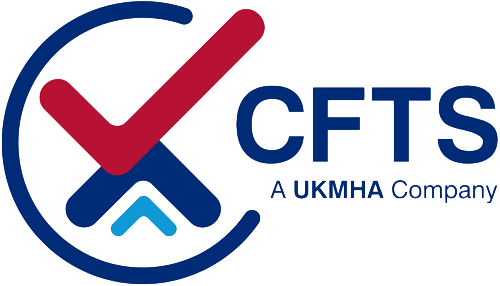Are you sitting safely?
30 January 2023
Why a CFTS Thorough Examination (LOLER) even includes the seat
How’s this for a simple yet game-changing New Year’s Resolution: check whether the provider responsible for the Thorough Examination (LOLER) for your forklift or warehouse trucks includes inspecting the operator’s seat.
According to Geoff Martin, Chairman of Thorough Examination accrediting body CFTS: “It may sound trivial but it’s a really good indicator of the quality and thoroughness of the inspection… and could make the difference between life and death in the case of a tipping accident.
“According to HSE guidelines, a Thorough Examination should not only include aspects of the trucks covered by LOLER (typically the lifting mechanism, forks, chains, etc.) but also the requirements of PUWER, covering the steering, brakes, traction system, chassis, wheels, tyres and much more.
“Along with the Machinery Directive guidelines, PUWER also covers seat belts/restraints to keep the operator safety seated, as well as operator presence devices (seat switches) that ensure the great majority of forklifts cannot be driven unless the operator is in position.
“These are important because one of the primary purposes of the legislation is to ensure the operator remains in place during a tip-over incident.”
Tipping accidents are a significant cause of fatality among forklift operators. In many cases, the operator will try to leap clear of the falling truck only to be ‘mousetrapped’ between the overhead guard and the ground, suffering massive trauma to the head or upper body.
“That’s why checking the seat restraint and the safety interlock/operator presence device is so important,” adds Geoff Martin. “It is also a reason why a key aspect of a CFTS-accredited Thorough Examination (LOLER and PUWER) is to ensure the seat mountings are secure and all seat belts and safety interlocks fitted to the truck control system are functioning correctly.
“So, as we move through 2023, my question to everyone reading this is: ‘does your current provider do that?’ It’s worth finding out because if you’re responsible for material handling operations, you’re also responsible for operator welfare.”
